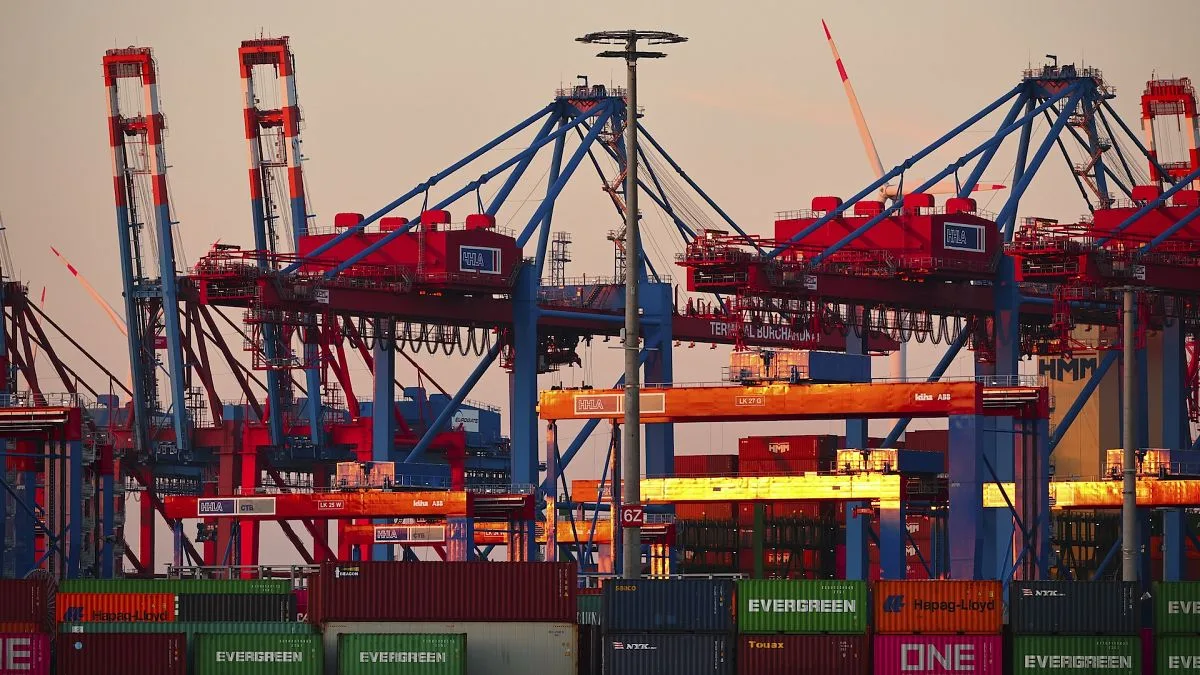Eurozone retail sales witnessed a modest growth of 0.2% in August, recovering from a flat performance in July. However, Germany’s factory orders experienced a sharp decline of 5.8%, marking the most significant drop since January. In the wake of these developments, the euro fell below $1.10.
According to Eurostat, retail sales in the eurozone rebounded slightly in August after stagnating in July. The euro area saw retail trade volumes increase by 0.2% compared to July, while the European Union experienced a slightly higher increase of 0.3%. This improvement contrasts with the previous month’s revised flat readings of both the eurozone and the broader EU.
Year-over-year, the eurozone’s retail sales grew by 0.8%, whereas the EU reflected a healthier annual increase of 1%. Although the monthly data met economists’ expectations, the annual figures for the eurozone fell short of the anticipated 1% rise, indicating softer consumer spending trends across the region.
The sector exhibited varied performance across different categories. Sales of food, beverages, and tobacco increased by 0.2%, while non-food product sales, excluding automotive fuel, improved by 0.3%. Remarkably, sales of motor fuel in specialized stores surged by 1.1%.
Among individual EU member states, Luxembourg reported the highest monthly gain, with retail volumes soaring by 5.3%. Cyprus and Romania followed with increases of 2.2% and 1.6%, respectively. Conversely, Denmark faced a notable downturn with a 1.5% drop in retail trade, alongside Slovakia, Bulgaria, and Croatia, which all recorded declines of approximately 0.7%.
German Manufacturing Orders Experience Significant Decline
The retail sector’s slight upturn stands in stark contrast to the troubling manufacturing outlook in Germany, Europe’s largest economy. According to the Federal Statistical Office, manufacturing orders in Germany plummeted by 5.8% in August compared to the previous month, far exceeding the expected 2% decline. This marks the worst monthly contraction since January 2024.
The downturn in factory orders was largely influenced by a decline in substantial orders received in July from sectors such as aircraft, ship, train, and military vehicle manufacturing. As these large orders diminished, the manufacturing sector struggled to maintain its previous momentum.
Furthermore, a closer examination of the data revealed a significant drop for capital goods, which fell by 8.6%, and a 2.2% decrease in intermediate goods. The consumer goods sector also endured challenges, with orders dropping by 0.9%. Notably troublesome were domestic orders, plummeting by 10.9%, along with eurozone orders down by 10.5%. In contrast, external orders from outside the eurozone rose by 3.4%.
Market Reactions: Euro Faces Pressure, Stocks Decline
The dismal performance of Germany’s manufacturing sector exerted downward pressure on the euro, causing it to fall below $1.10 during early trading on Monday—down 0.1%. This signifies the euro’s seventh consecutive day of losses, its longest losing streak since September 2023.
Contributing to the euro’s struggles were remarks from European Central Bank chief economist Philip Lane, who indicated that inflation in the euro area is decreasing faster than anticipated, thereby raising market expectations for potential interest rate cuts.
Equities in Europe Begin Week on a Weak Note
European stocks also faced a subdued start to the week, with the Euro STOXX 50 down 0.3%. Milan’s FTSE Mib index lagged further, dropping 0.5%, while Germany’s DAX slipped by 0.4%. In contrast, Madrid’s IBEX 35 managed to break the trend by gaining 0.3%.
On the corporate front, French luxury brands like Kering and LVMH led the gains within the Euro STOXX 50, rising by 2.4% and 1.1% respectively, fueled by optimism regarding improved export prospects to Asia following recent stimulus measures from China.
However, the pharmaceutical sector struggled, with Sanofi declining by 2.2% amid concerns regarding talc-based products affecting its consumer healthcare segment. Additionally, Bayer and semiconductor firm ASML Holding experienced losses of 1.8% and 2.5%, respectively.
Photo credit & article inspired by: Euronews



